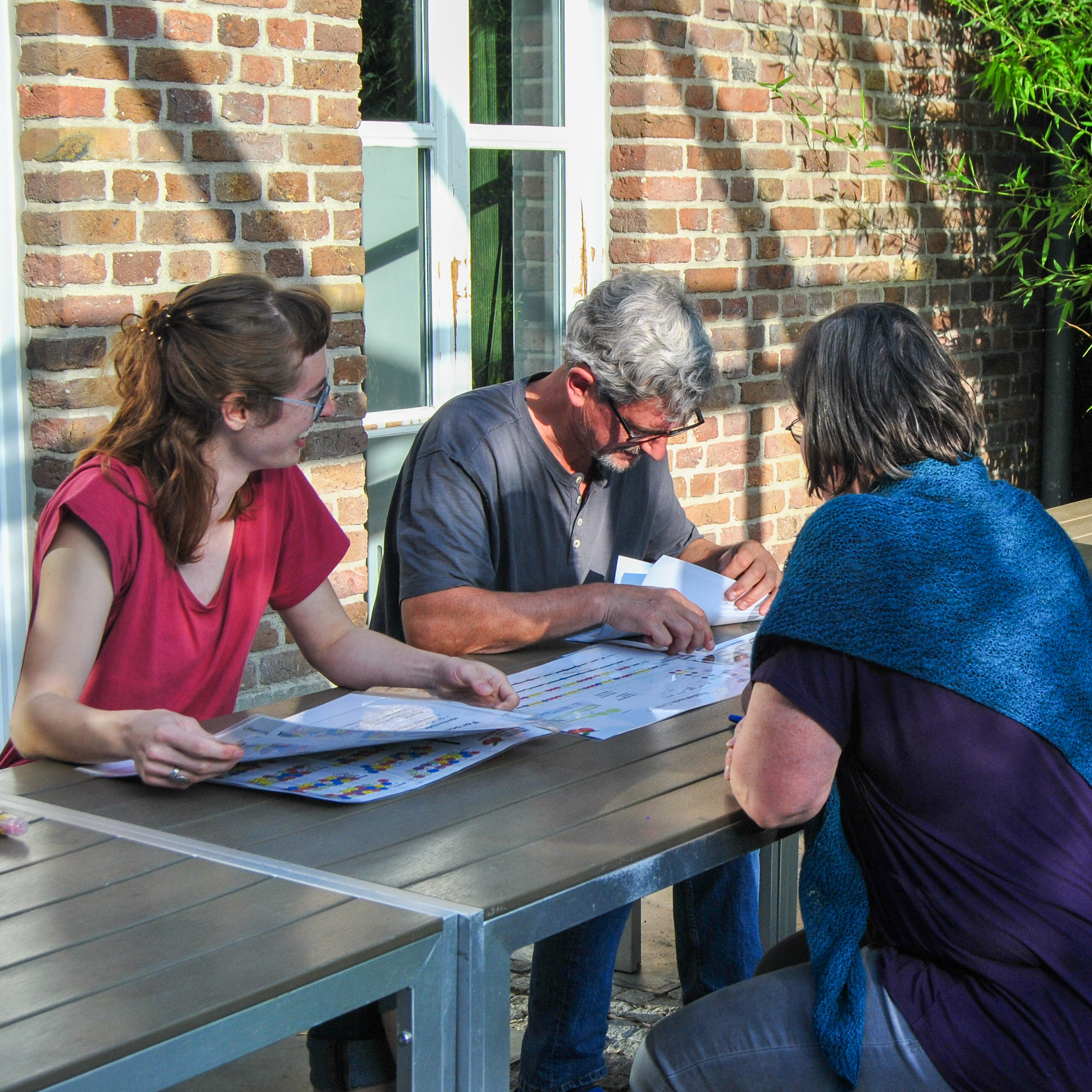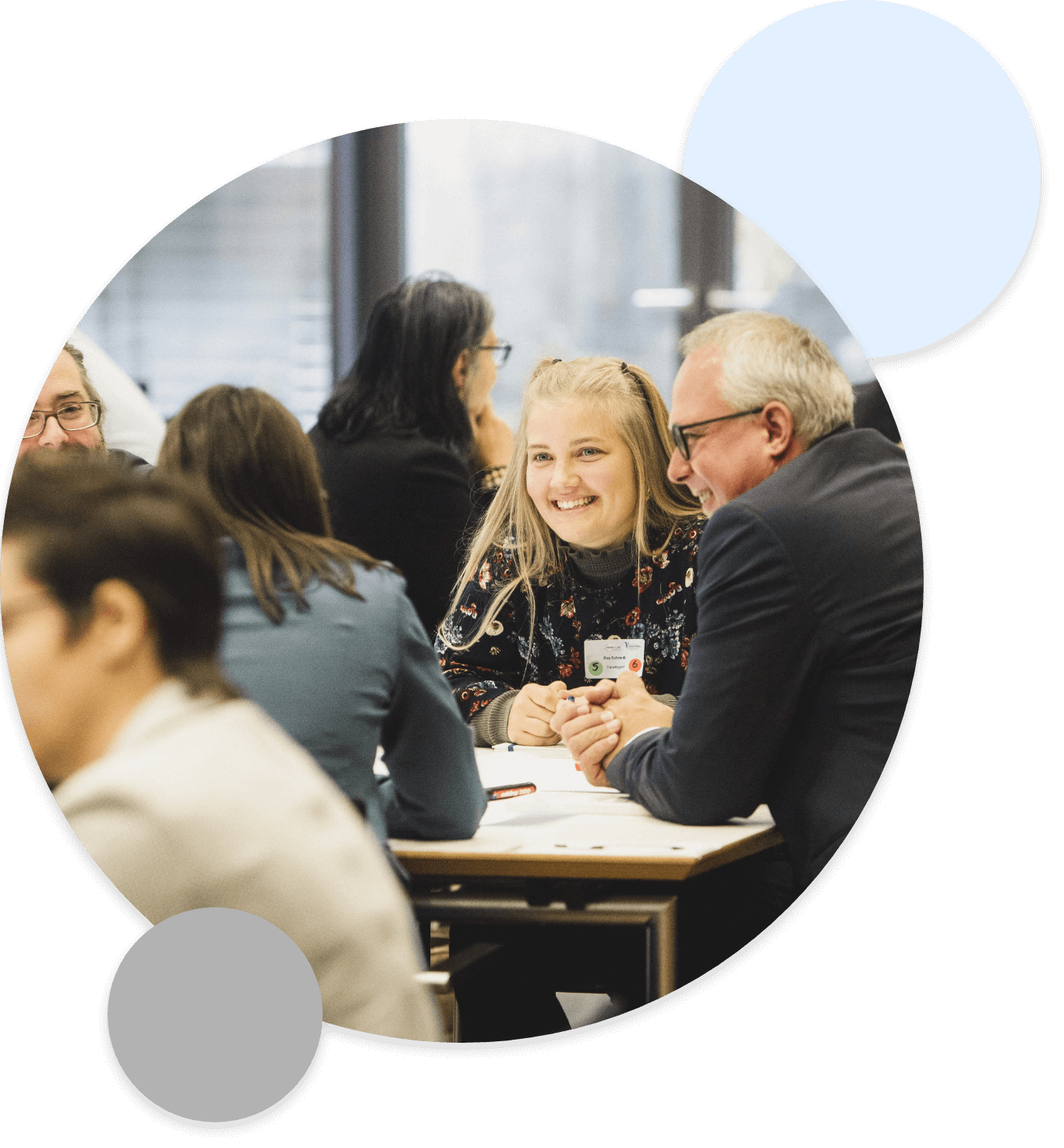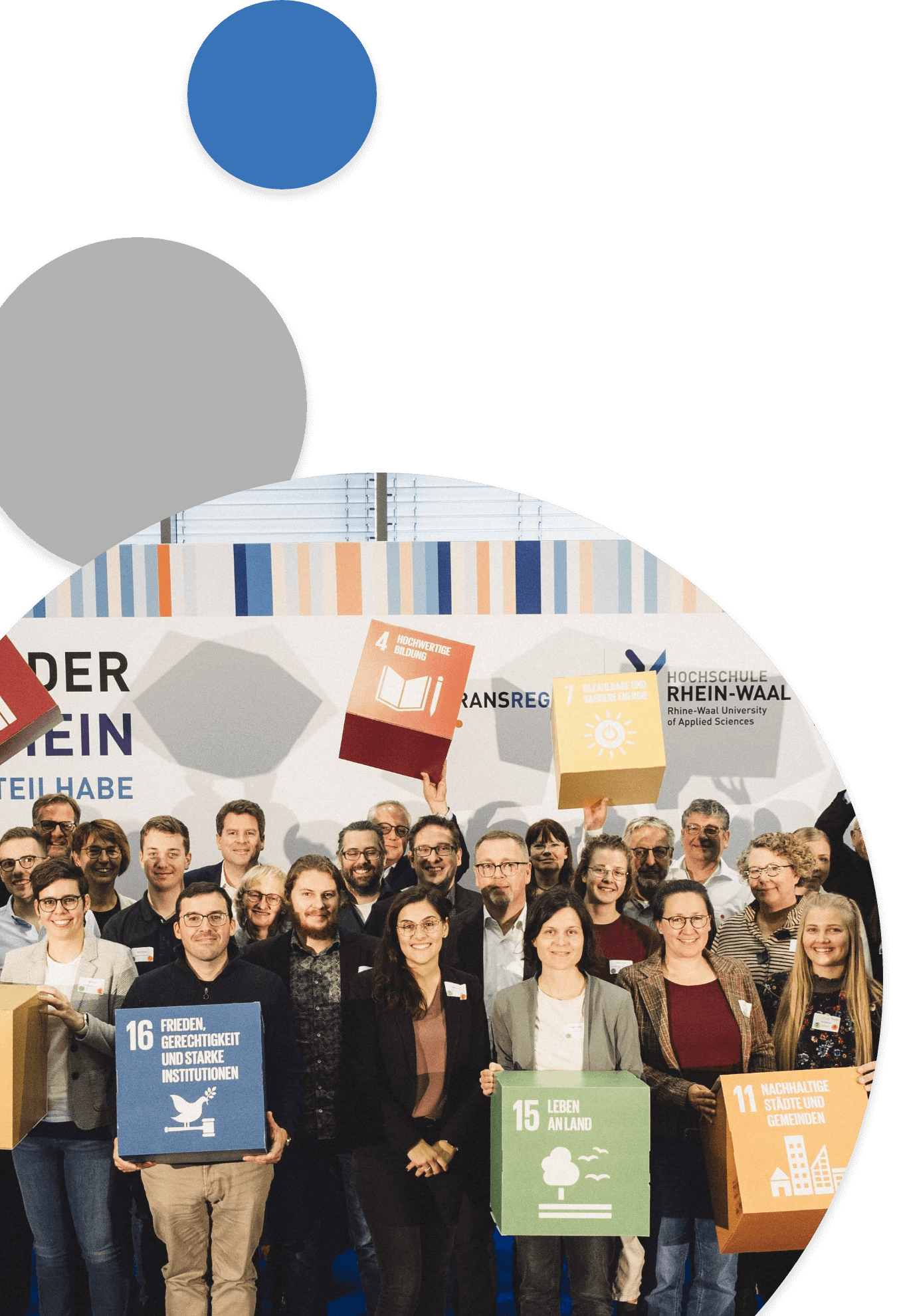
Agroforestry round table offers the opportunity to hear other voices
In August, the agroforestry get-together initiated by our Agroforestry Living Lab brought together around 20 participants from the Lower Rhine region from various branches of agriculture and from the university for a lively exchange of experiences.
Berkhöfel, an idyllic farm in the Lower Rhine plains, hosted the second agroforestry round table on August 9, 2024. Over apple juice and apple secco from his own production, Hendrik van Aken, who cultivates meadow orchards and plans and implements agroforestry systems on his farmland, gave an overview of his farm before a relaxed round of introductions and then a three-hour exchange of experiences.
Agroforestry pioneers meet people interested in agroforestry
It quickly became clear that a wide variety of stakeholders come together here, who were happy to use the opportunity of the regulars’ table to hear other voices and ideally find the right one for themselves. Dairy farming met arable farming, organic farming met conventional farming, permaculture met food forest, ornamental plant cultivation met tree nurseries and leasing met landscape conservation associations, young met old, Kleve district met Wesel district. In other words: agroforestry enthusiasts come together with cautiously interested people. Right in the middle of it all: our doctoral student Anna-Lea Ortmann from the Agroforestry Living Lab, who used the agroforestry round table to present her research on drought-resistant apple rootstocks, i.e. the root system of apple trees, to interested visitors and to give an outlook on the planned field trial from the beginning of 2025.
“You can’t have everything: Tree or arable farming?”
In an open and relaxed atmosphere, the 20 or so participants shared their reasons for getting involved with agroforestry and willingly shared their experiences, questions, enthusiasm and skepticism. Some had brought maps and aerial photographs of areas, others used Google Earth.
While for some participants agroforestry is “a door opener and offers a great opportunity to introduce even more complex agricultural topics”, others came to the topic “rather compulsively”, for example because they had to plant trees due to compensation measures.
Agroforestry systems involve the combination of woody plants with arable crops and/or livestock farming on one area. They offer many advantages, ranging from greater biodiversity and protection against soil erosion caused by wind and water to improved soil fertility. More diversity in flora and fauna was indeed an incentive for some of the regulars to look into agroforestry systems.
“Nature is being cleared out, the areas to be cultivated are getting bigger and bigger,” one farmer noted with regret. However, the desire to tackle climate change and make arable land more versatile was in direct contrast to the fears expressed that “the efficiency of the land will be destroyed”, as one farmer put it. A dynamic discussion immediately ensued, pens were drawn, track lines were drawn and track line planning for agroforestry was discussed. “You can’t have everything: Tree or arable farming?” was an observation that generated further conversation.
Dr. Ana Kreter, project coordinator of our agroforestry living lab, is delighted: “The second agroforestry round table we initiated was a complete success. We were able to welcome new guests as well as agroforestry experts and old acquaintances. This is exactly what the regulars’ table is for: exchanging ideas among practitioners, sharing experiences and practical tips, giving real-life examples for agroforestry newcomers. Everyone is looking to learn something new. Simply network and establish agroforestry step by step in the Lower Rhine region.”
We are already looking forward to the next agroforestry get-together in two months’ time. Whether it’s a specific question or a first approach to agroforestry systems: New faces are always welcome.We will report on the exact date and venue on our website as soon as possible. Would you like to stay up to date on the activities of our agroforestry living lab? Then send us a short e-mail with your contact details to transregint@hochschule-rhein-waal.de.




Kommentare